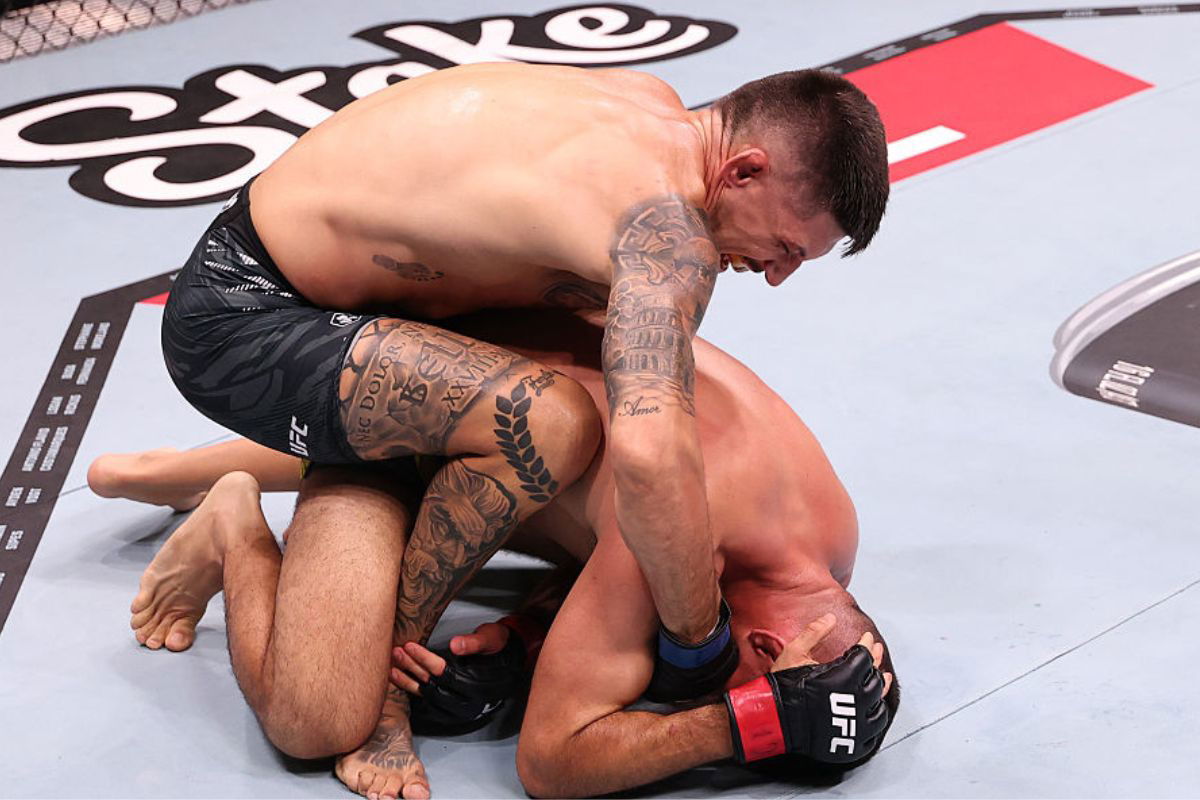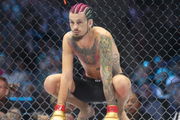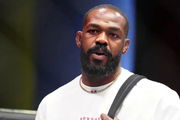

Sometimes, the hardest hits in a fight don’t come from punches; they come from decisions. At UFC Rio, Vicente Luque’s return to home soil should’ve been a story of redemption. Instead, it turned into something else entirely. Across from him stood Joel Alvarez, faster, sharper, and, as the world would soon see, far more merciful. What unfolded inside the Octagon left fans torn between admiration and frustration: Alvarez refused to go for the finish, and Luque’s corner refused to protect their fighter.
Watch What’s Trending Now!
The first round told a familiar story. Alvarez used his range beautifully, snapping jabs and cutting angles like a surgeon dissecting his target. Luque, ever the warrior, pushed forward, throwing front kicks and looking to trade. But disaster struck midway through; what initially looked like an accidental eye poke left the Brazilian wincing. The referee halted the action, and a doctor stepped in. However, replays showed that it was part of a punch, and the halt in the action led to a lot of debate.
By Round 2, that tale turned grim. Alvarez’s composure stood in contrast to Luque’s fading sharpness. Every time the Brazilian threw, Alvarez answered with combinations and kicks that found their mark. A crushing body kick forced Luque to shoot desperately for a takedown, a move that backfired when Alvarez sprawled, took top control, and rained down strikes. The Spaniard threatened with a D’Arce choke before transitioning to Luque’s back. The punishment was relentless, the control clinical. Yet, what made it chilling wasn’t Alvarez’s dominance; it was how one-sided the fight had become, while Luque’s corner watched in silence.
ADVERTISEMENT
Then came Round 3 and mercy. Luque’s right eye was nearly sealed shut, the swelling grotesque under the bright lights. The referee, shockingly, didn’t call for another inspection. Fans could see what was coming, but Alvarez chose not to finish what he could’ve easily ended. He controlled, but didn’t destroy. He locked in a reverse triangle, a submission that could’ve closed the show, but eased the pressure, letting Luque breathe.
The corner is failing Vicente Luque right now. They should throw in the towel and save their fighter. https://t.co/3H7VxdLyB2
— Adam Martin (@MMAdamMartin) October 12, 2025
When the horn sounded, Alvarez had his victory at UFC Rio, and perhaps, his conscience intact. The unanimous 30-26 decision marked a dominant display, but also one of rare restraint. The same couldn’t be said for Luque’s corner, who took the brunt of fan outrage online for failing to protect their fighter when he needed them most, as we now shift our focus over to their reactions.
ADVERTISEMENT
Joel Alvarez earns respect at UFC Rio as Vicente Luque’s corner and referee come under fire from the fans
One fan wrote, “If a cornerman asks if you can fight and you say ‘I don’t know. My eye is not good,’ just stop it.” This reaction summed up the frustration of many watching. In combat sports, the corner’s role isn’t just to strategize, it’s to safeguard. Vicente Luque’s visible struggle and uncertainty should’ve been enough for intervention. But instead, he was sent back out, half-blind, against a man known for his finishing instincts.
ADVERTISEMENT
Another added, “The corner is failing Vicente Luque right now. They should throw in the towel and save their fighter.” From round two onward, it was clear the fight’s direction wasn’t changing. Luque’s durability is legendary, but there’s a thin line between bravery and negligence. The corner’s hesitance to act, possibly out of respect for Luque’s will to continue, drew heavy backlash. In a sport where health is fleeting and injuries can alter careers, fans demanded accountability from those who should’ve protected their man.
Top Stories
Ex-UFC Champion Shares Emotional Update Before Cancer Surgery Ahead of Title Fight

Sean O’Malley Receives Unexpected UFC White House Callout Amid Petr Yan Title Fight Uncertainty

Dana White Gets Two Unexpected Saviors for UFC Mexico After Main Event Cancellation

Jon Jones’ “Severe” Medical Update Ends Daniel Cormier RAF Match, Puts UFC White House Plans in Jeopardy

Team Khabib Star Brutally Trolls Paddy Pimblett and Justin Gaethje Over UFC 324 Main Event

Others just stated bluntly, “TRUTH. Boxing coaches would have stopped it.” This comparison hit hard. Boxing culture has long embraced the idea of corner stoppages as a form of compassion, while MMA often valorizes toughness above all else. The fan’s comment cut to the core of the issue, the culture of “never quit” can sometimes do more harm than good. The difference in mentality between the two sports has reignited debates about whether MMA corners need to evolve to prioritize fighter safety over pride. What do you think?
A fan observing the live crowd noted, “Alvarez has the inverted triangle locked in but obviously won’t finish Luque from that position, so crowd is now chanting ‘Hey referee, f– you.’” It was a surreal moment, fans calling out the referee, not for stopping a fight too soon, but for letting it go on too long. Even Joel Alvarez seemed aware of the situation’s discomfort. His refusal to finish, while noble, underscored just how compromised Luque was.
ADVERTISEMENT
Someone else wrote, “It’s the first time I’m glad a fighter didn’t go for the finish. Luque had no business being in that 3rd, so I’m glad he didn’t take more punishment.” This sentiment captured the conflicted emotions of the night. Normally, fans want knockouts, submissions, and definitive endings. But here, mercy became the highlight. Joel Alvarez’s restraint earned him respect at UFC Rio, a rare example of compassion trumping competition.
And finally, one fan summed it up perfectly: “At least Alvarez agreed to let him ride out the round. Guy whose job is whooping his a– was the most considerate to his well-being in and around the cage.” That irony didn’t escape anyone. The opponent, not the corner, not the ref, became the one to protect Vicente Luque at UFC Rio. In a sport built on violence, it was the act of mercy that stole the spotlight.
Joel Alvarez may have given up his perfect finishing record, but he gained something rarer: the respect of a crowd that saw decency in a moment of brutality. The Spaniard won the fight, but Vicente Luque’s corner lost the trust of many, adding weight to the fact that the Octagon is no place for hesitation, whether in offense or in protection.
ADVERTISEMENT
ADVERTISEMENT
ADVERTISEMENT
ADVERTISEMENT